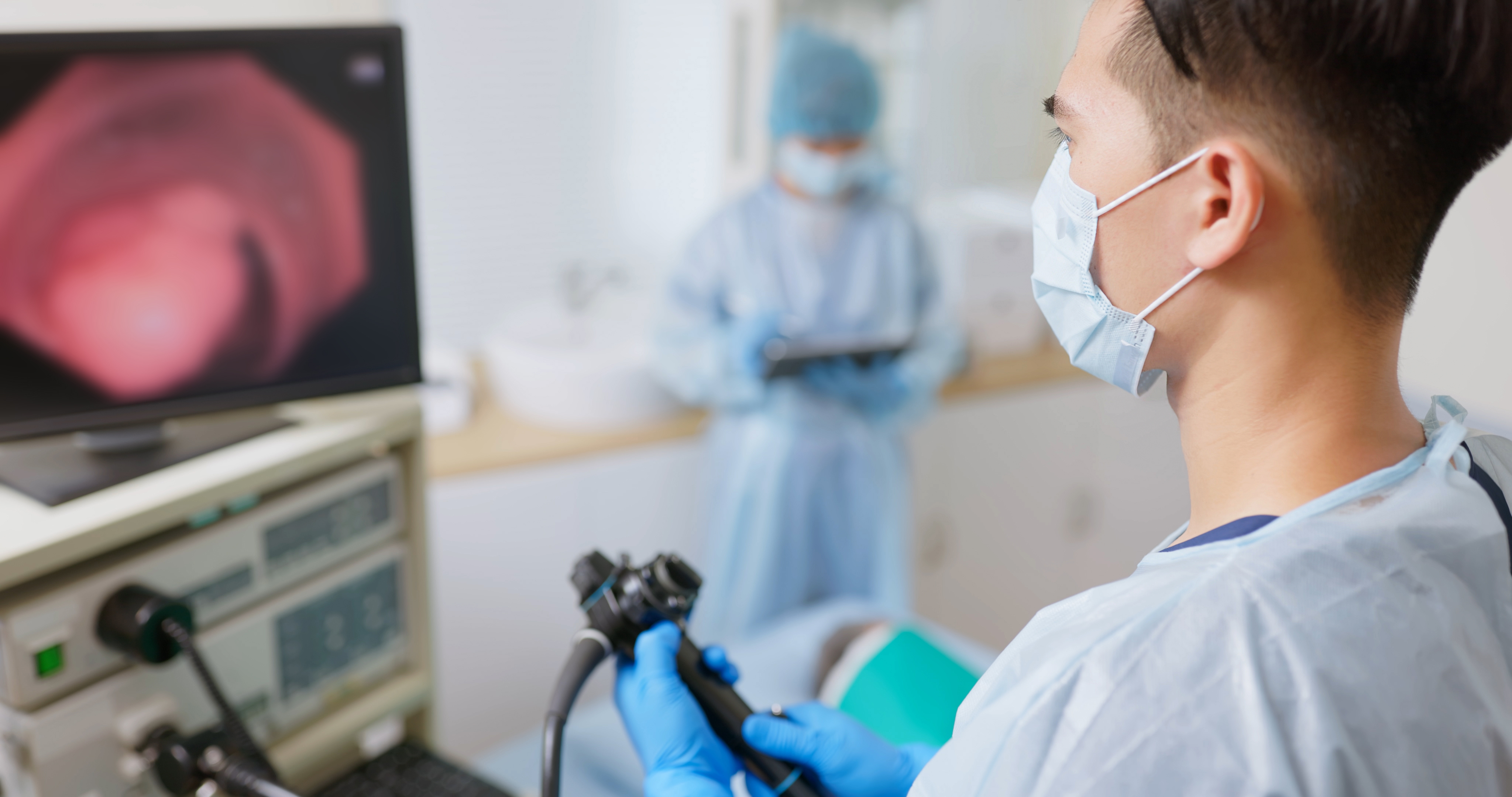Gut bacteria linked to colorectal cancer in young people
Certain gut bacteria reside in colorectal tumors, but the species differ depending on a patient's age, offering hope that our gut tenants could serve as early warning signs of cancer in young people.

Get the world’s most fascinating discoveries delivered straight to your inbox.
You are now subscribed
Your newsletter sign-up was successful
Want to add more newsletters?

Delivered Daily
Daily Newsletter
Sign up for the latest discoveries, groundbreaking research and fascinating breakthroughs that impact you and the wider world direct to your inbox.

Once a week
Life's Little Mysteries
Feed your curiosity with an exclusive mystery every week, solved with science and delivered direct to your inbox before it's seen anywhere else.

Once a week
How It Works
Sign up to our free science & technology newsletter for your weekly fix of fascinating articles, quick quizzes, amazing images, and more

Delivered daily
Space.com Newsletter
Breaking space news, the latest updates on rocket launches, skywatching events and more!

Once a month
Watch This Space
Sign up to our monthly entertainment newsletter to keep up with all our coverage of the latest sci-fi and space movies, tv shows, games and books.

Once a week
Night Sky This Week
Discover this week's must-see night sky events, moon phases, and stunning astrophotos. Sign up for our skywatching newsletter and explore the universe with us!
Join the club
Get full access to premium articles, exclusive features and a growing list of member rewards.
Colorectal cancer most often affects people over age 50, but it's on the rise in younger people, who are rarely offered screening to catch these cancers early. Now, a new study hints that microbes found in the tumors of younger and older cancer patients differ, and this could potentially offer new means for early diagnosis.
In new research, published Feb. 1 in the journal eBioMedicine, scientists probed the gut microbiome — the community of microbes that populate the lower digestive tract — in cancer patients of two age groups. They included 136 people under age 50 with a median age of 43 and 140 people over 50 with a median age of 73. The researchers found that distinct sets of bacteria were present in tumors of older and younger people with colorectal cancer.
Colorectal cancer is often, but not always, hereditary.
Related: Antibiotics may raise colon cancer risk, massive study suggests
"We know that many of these early-onset cancers are not directly linked to a genetic factor," said Laura Valle, a cancer researcher at the Catalan Institute of Oncology, IDIBELL in Spain who was not involved in the new study. Environmental factors, such as alcohol consumption and high-fat, low-fiber diets, are also associated with this cancer, whereas people who eat fiber-rich foods appear less likely to develop it. The foods and drinks people consume are known to affect their gut bacteria, suggesting a link between these factors.
"We have always hypothesized that early-onset colorectal cancers will have something to do with the microbiome," Valle told Live Science.
To find out which gut bacteria thrive inside the tumors of older and younger people, researchers retrospectively looked at samples of tissue taken from cancer patients, sampling the microbiome directly from tumors and from nearby noncancerous tissue.
Get the world’s most fascinating discoveries delivered straight to your inbox.
In both age groups, tumors harbored a smaller variety of bacterial species than surrounding tissue, and this loss of diversity was more dramatic in the older group. This suggests that only a portion of gut bacteria can survive in a tumor, a low-oxygen environment that's often inflamed by the immune system.
However, it's not yet clear what the bacteria do inside the tumors or why certain species thrive there. "This is what exactly needs to be figured out using mechanistic studies," said lead study author Naseer Sangwan, a microbiologist at the Cleveland Clinic Lerner Research Institute.
Beyond looking at overall changes in microbial diversity, Sangwan and colleagues found certain species that were more often found in tumors of one age group over the other. They also found that different types of colorectal tumors — such as colon carcinomas and rectal tumors — housed distinct bacterial species.
Neither Sangwan nor Valle wanted to speculate about how any given species might affect the growth or spread of a tumor.
"It's usually not just one bacterium," Valle said; the community of bacteria in a given tumor should be considered as a whole, not as individual parts. In other words, the microbes interact in complex ways and could collectively influence a tumor's behavior.
At this point, the study has revealed a correlation between certain gut microbes and colorectal cancer. Although this doesn't prove that these bacteria cause colorectal cancer, there's a possibility of a causal link. One hypothesis is that the presence of certain bacterial species or a combination of species could either prevent or promote the cancer.
For example, a broad group of bacteria called Akkermansia, which were more often found in the younger group, were predominantly present in small tumors. This led the scientists to speculate whether these microbes might somehow limit tumor growth. In fact, a mouse study revealed that probiotic treatment — which involved consuming live cultures of Akkermansia — could hinder tumor growth.
Such findings lead some scientists to wonder whether probiotics could control or limit colorectal cancers in human patients. Valle said she's skeptical, citing evidence that treatments designed to alter the gut microbiome don't necessarily have lasting effects.
Sangwan, on the other hand, is excited about the prospects for harnessing the microbiome for early cancer diagnosis. The eventual goal is to "accurately predict the occurrence of cancer in young people," he said.
Early diagnosis of colorectal cancer isn't usually an option in people under age 45, who have yet to undergo their first colonoscopy. "If you get symptoms from a cancer in the colon, it usually means that it's quite advanced," Valle noted. However, lowering the screening age might not be the best solution.
"It's invasive, and there is a percentage of adverse effects," such as punctures in the colon, she said. But if we know what bacteria can be found in tumors, it might be possible to detect the microbes in stool samples from young people, she suggested, thus narrowing down who should be screened for signs of cancer.
The study had a small number of participants, so it requires validation in a larger group, Valle said. In addition, many ethnic groups were missing from the study — such as Black, Asian, Hispanic, Native American and Pacific Islander backgrounds — so scientists aren't certain these results would be similar in patients in these groups.
"We will follow up on this using bigger cohorts of diverse people and ethnicities," Sangwan said.
This article is for informational purposes only and is not meant to offer medical advice.
Ever wonder why some people build muscle more easily than others or why freckles come out in the sun? Send us your questions about how the human body works to community@livescience.com with the subject line "Health Desk Q," and you may see your question answered on the website!

Kamal Nahas is a freelance contributor based in Oxford, U.K. His work has appeared in New Scientist, Science and The Scientist, among other outlets, and he mainly covers research on evolution, health and technology. He holds a PhD in pathology from the University of Cambridge and a master's degree in immunology from the University of Oxford. He currently works as a microscopist at the Diamond Light Source, the U.K.'s synchrotron. When he's not writing, you can find him hunting for fossils on the Jurassic Coast.
 Live Science Plus
Live Science Plus





